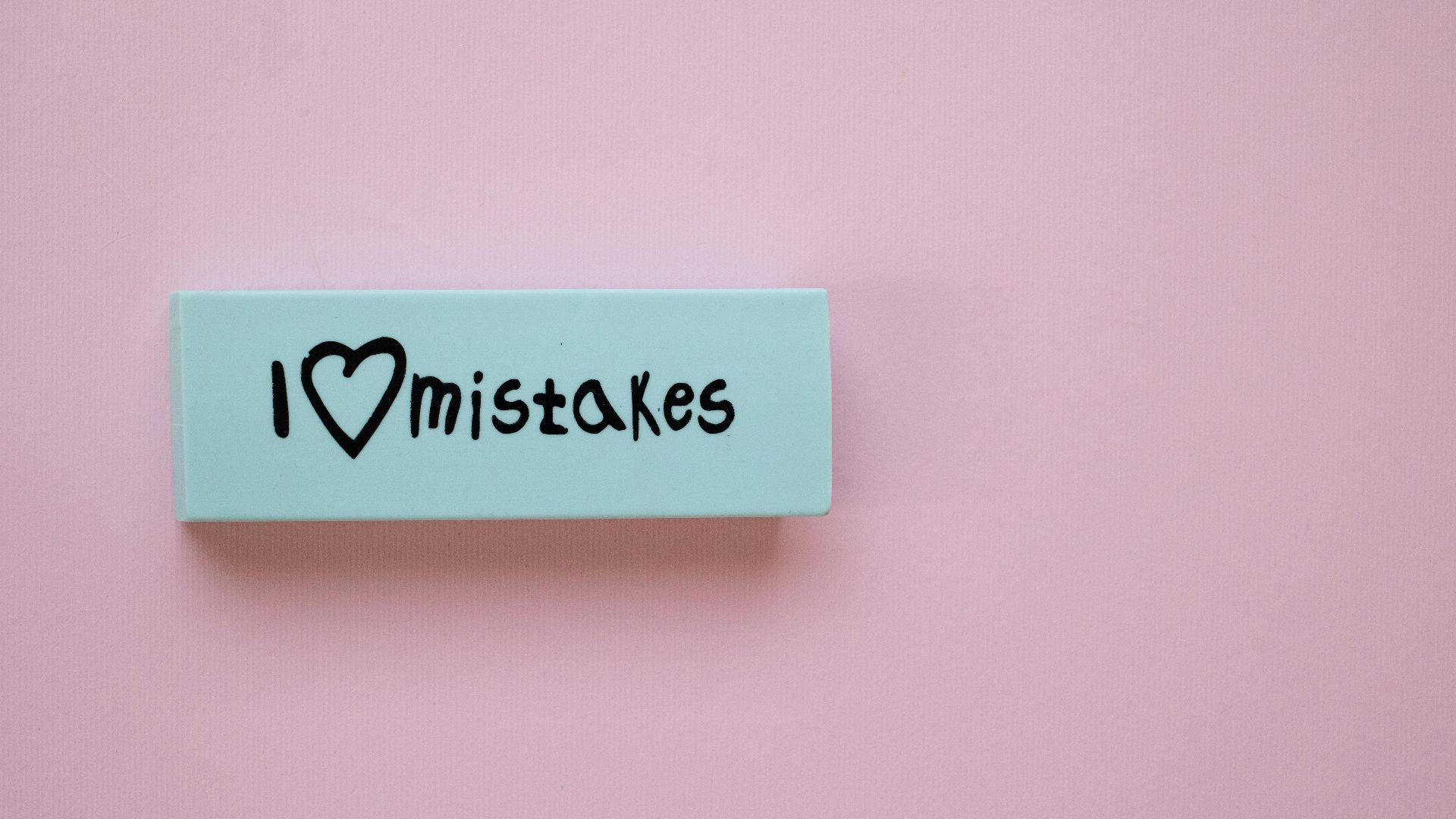Are You a Perfectionist?
Have you ever struggled to finish something because you didn't think the end product would be "good enough"? Or maybe you even delayed starting a project because you were afraid it might fail? If you said yes to either, you might be a perfectionist. Of course, it's normal to want to put your best foot forward, but there's a difference between striving for success and holding yourself back by obsessing over the smallest mistakes. If you're still on the fence about whether this sounds like you, here are 10 signs you're a perfectionist—and 10 ways to overcome it.
1. Nitpick Everything
It's a known fact that perfectionists will nitpick everything about themselves and their work, but did you know that they'll also nitpick others? If you find yourself not only heavily criticizing your own pieces but everyone else's as well, that's a classic sign you're a perfectionist. It's not enough that you need to be perfect—everybody has to be, too.
2. Start New Projects—But Rarely Finish
Do you have a habit of picking up new hobbies or starting new projects but never actually continuing with them? That might be another sign you're a perfectionist. When you begin something but you're not quite proud of it yet, and you're not sure how to make it the absolute best it can be, you decide to just drop it.
3. All-or-Nothing Attitude
Another sign you're a perfectionist is if you have an all-or-nothing attitude. You either want to be the absolute best or you don't want it at all. This means if you even have an inkling you might be booted down to second place, you'd rather not start at all.
4. Defensive of Criticism
Perfectionists don't take feedback well. It's one thing when you're receiving purely negative critiques over constructive criticism—when someone disrespects your work without providing helpful ways to improve it. But it's entirely another thing to become defensive of every comment you get. Perfectionists hate feeling that the work they put out was not good enough.
5. Unrealistically High Standards
When you're always—and only—striving for perfection, you also have unrealistically high standards. It isn't just that these goals are hard to reach, it's that they're nearly impossible. You can expect to win a championship if you've never played the sport, so don't set that as your achievement from the get-go.
6. Low Self-esteem
Perfectionists also have very low self-esteem; just one error will make them think they're not good enough and that everyone else is better. If you constantly nitpick your work and get extremely upset when people critique it, and those two things in turn make you feel terrible about yourself, leading you to question your overall "worth"—you're more than likely a perfectionist.
7. Procrastinate
Contrary to starting multiple projects but never finishing them is procrastination. In other words, you fear that the end result won't be up to par with your standards, which ends up holding you back. However, sometimes it could be that you have so many ideas and you're unsure which one to begin first, as actually doing the task will take a toll on your energy.
8. Fear of Failure
Fear of failure goes hand-in-hand with procrastination when you're a perfectionist, and it's this fear that will stop you from even starting. After all, you can't fail if you never even start, right? But this mindset will also prevent you from achieving success in the long run.
9. Overthink Every Mistake
Every mistake, no matter how big or small, seems magnified to you when you're someone who's always striving for perfection. You don't forget these blips, either; in fact, you'll bring them up again and again. Remember that time you forgot a comma? Or the time you stuttered during your presentation? Yeah—those are never leaving your mind.
10. Crave Validation
Perfectionists crave validation and will actively seek for it. They'll also base their "value" as a person on the positive feedback they get back. But if you only listen to comments you want to hear, you'll never discover new approaches or ways to improve, which may hinder your growth and progress.
This tendency, along with the other nine we covered, are all clear signs of perfectionism. So now that you're aware of the traits, let's jump into the 10 ways to overcome this mindset.
1. Admit Your Perfectionist Traits
The first step to breaking the habit of perfectionism is to acknowledge you have this trait. If you refuse to admit to it, you'll never want to fix it because you don't think the advice applies to you. But it's only once you come to terms with it that you'll start to recognize all your habits—and work towards a healthier mindset.
2. Change Your Mindset on Mistakes
To overcome perfectionism, you need to change the way you view mistakes. Instead of categorizing these errors as signs that you "failed," take them as learning opportunities. Each mistake you make is one that'll make you wiser—not the other way around.
3. Set Reasonable Goals
Instead of setting yourself up for the impossible, break your goals into chunks can be easily achieved. This way, you'll have a constant string of things to work towards and feel empowered with every small victory you accomplish along the way.
 Glenn Carstens-Peters on Unsplash
Glenn Carstens-Peters on Unsplash
4. Push Yourself to Start
Don't fall into the hands of procrastination—you'll never get out of it. While it can be difficult to convince yourself to start something you're not sure you'll do well in, the longer you continue imagining your failures, the longer it'll take for you to ever achieve anything. You'll never get anywhere if you don't start somewhere.
5. Celebrate Your Successes
When you do reach those achievements, remember to celebrate your hard work. Treat yourself to something nice, and give yourself a pat on the back. It might also help to tune out any comments from anyone who's only out to bring you down, so surround yourself with people who support you and want to see you succeed.
6. What's Done is Done
Success, however, isn't always achievable, and there will be times when you don't meet the goals you set. Instead of dwelling over it and ruminating about what you could've done if only you could go back in time and redo it, let it go. What's done is done, and there will always be more successes down the road, so just shrug it off.
7. Set a Timer
To break out of your procrastinator ways, it may help to set a timer before you start or continue projects. Putting a time limit on your tasks will allow you to concentrate on just working, rather than fussing over what might be the best optimal way to write or do something.
8. Keep an Open Mind
Keep an open mind and welcome all sorts of feedback. Challenge yourself a little more each time. The further you push and expose yourself to different types of projects and critiques, the easier it'll be for you to take everything in stride. The world isn't out to get you; it wants you to succeed as much as you want to as well.
9. Don't Be Afraid of Starting Over
If you aren't happy with the way your current draft is turning out, start again. There's no harm in trying a second or third time. Of course, you don't want to fall back into the habit of your perfectionist traits, where you never finish your work because it's not quite "perfect" enough. Just make sure you find a good balance.
10. Remember that Perfection Doesn't Exist
The most important thing is to remember that perfection doesn't exist. You might have heard the saying "practice makes perfect," but all that means is to continue working hard to achieve your desired goals. There will always be something or someone who's better—and that's okay. Keep polishing your art, and you'll be golden.



























